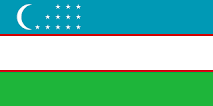Chemycal has been acquired by 3E
Learn MoreChemycal has been acquired by 3E
Learn MoreDiscover how Chemycal PRO helps you boosting your regulatory monitoring:

Genetically Modified Organisms (GMOs)
The Cartagena Protocol on Biosafety to the Convention on Biological Diversity (CBD) is an international agreement which aims to ensure the safe handling, transport and use of modified organisms resulting from modern biotechnology which may have adverse effects on biological diversity, taking also into account risks to human health. The Protocol differentiates between five risk classes ranging from no-risk to high-risk GMOs, which are defined in the respective lists. Uzbekistan acceded to the Cartagena Protocol on Biosafety. Non-parties to the Protocol may nevertheless impose measures for the importation, placement on the market and use of GMOs. For member states, a facilitated procedure may be available in the form of an advanced informed agreement (AIA) on designated products.
CONTINUE READING ON madb.europa.eu
2013 © MyChemicalMonitoring. ALL Rights Reserved. About Us | Terms and Conditions